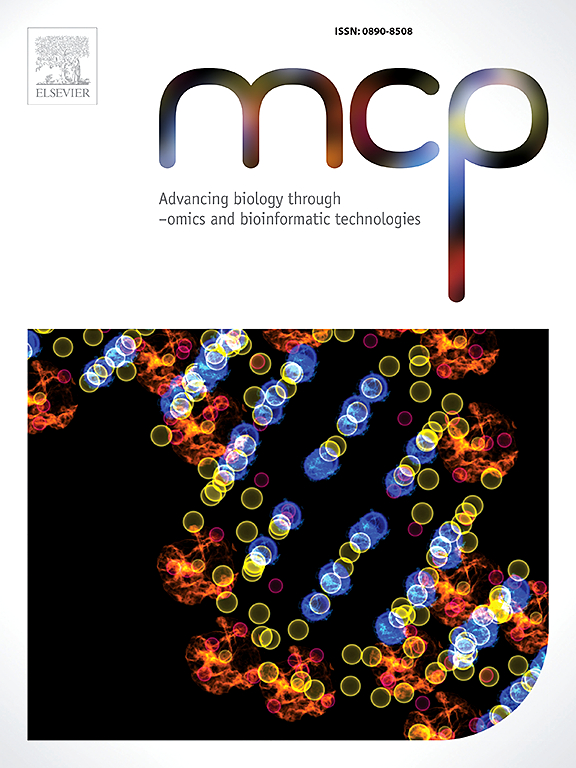Differential gene expression in uterine endometrioid cancer cells and adjusted normal tissue
IF 3
3区 生物学
Q3 BIOCHEMICAL RESEARCH METHODS
引用次数: 0
Abstract
Endometrial cancer is a significant public health concern with rising incidence rates globally. Understanding the molecular mechanisms underlying this disease is crucial for developing effective therapeutic strategies. Our study aimed to characterize transcriptional changes in endometrial cancer tissues compared to adjusted healthy tissue. Using RNA sequencing, we identified 2483 differentially expressed genes (DEGs), including protein-coding genes, long non-coding RNAs (lncRNAs), and microRNAs (miRNAs). Notably, several known cancer-related genes were differentially expressed, such as MYC, AKT3, CCND1, and CDKN2A. Pathway analysis revealed significant alterations in cell cycle regulation, several signaling pathways, and metabolic processes. These findings provide valuable insights into the molecular pathways dysregulated in endometrial cancer. Our results may contribute to the development of novel therapeutic targets and biomarkers for this disease.
子宫内膜样癌细胞与调节后正常组织的差异基因表达。
子宫内膜癌是一个重大的公共卫生问题,全球发病率不断上升。了解这种疾病的分子机制对于制定有效的治疗策略至关重要。我们的研究旨在描述子宫内膜癌组织与调整后的健康组织相比的转录变化特征。通过 RNA 测序,我们发现了 2483 个差异表达基因(DEGs),包括蛋白编码基因、长非编码 RNAs(lncRNAs)和 microRNAs(miRNAs)。值得注意的是,一些已知的癌症相关基因出现了差异表达,如 MYC、AKT3、CCND1 和 CDKN2A。通路分析表明,细胞周期调控、几种信号通路和代谢过程都发生了重大改变。这些发现为了解子宫内膜癌中失调的分子通路提供了有价值的见解。我们的研究结果可能有助于开发该疾病的新型治疗靶点和生物标记物。
本文章由计算机程序翻译,如有差异,请以英文原文为准。
求助全文
约1分钟内获得全文
求助全文
来源期刊

Molecular and Cellular Probes
生物-生化研究方法
CiteScore
6.80
自引率
0.00%
发文量
52
审稿时长
16 days
期刊介绍:
MCP - Advancing biology through–omics and bioinformatic technologies wants to capture outcomes from the current revolution in molecular technologies and sciences. The journal has broadened its scope and embraces any high quality research papers, reviews and opinions in areas including, but not limited to, molecular biology, cell biology, biochemistry, immunology, physiology, epidemiology, ecology, virology, microbiology, parasitology, genetics, evolutionary biology, genomics (including metagenomics), bioinformatics, proteomics, metabolomics, glycomics, and lipidomics. Submissions with a technology-driven focus on understanding normal biological or disease processes as well as conceptual advances and paradigm shifts are particularly encouraged. The Editors welcome fundamental or applied research areas; pre-submission enquiries about advanced draft manuscripts are welcomed. Top quality research and manuscripts will be fast-tracked.
 求助内容:
求助内容: 应助结果提醒方式:
应助结果提醒方式:


